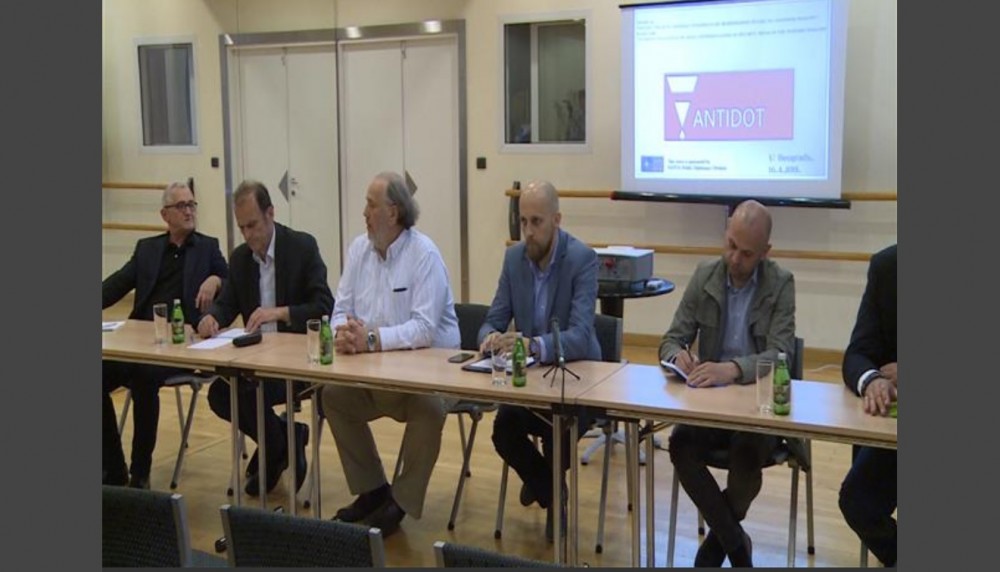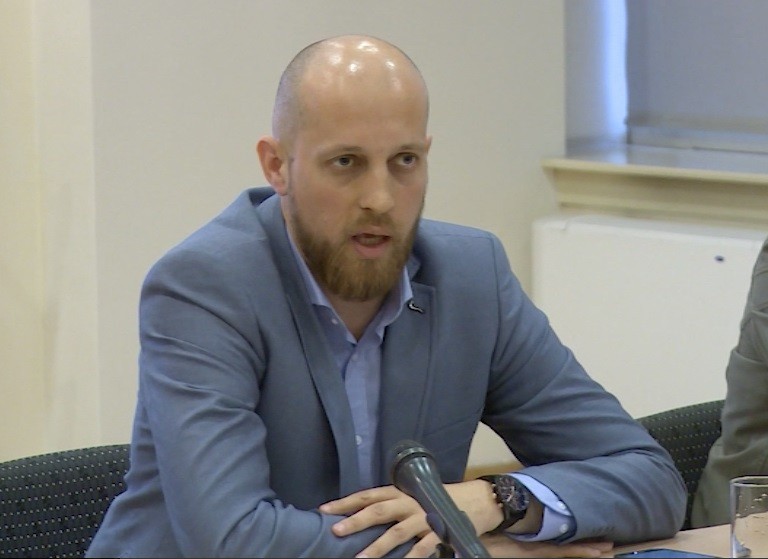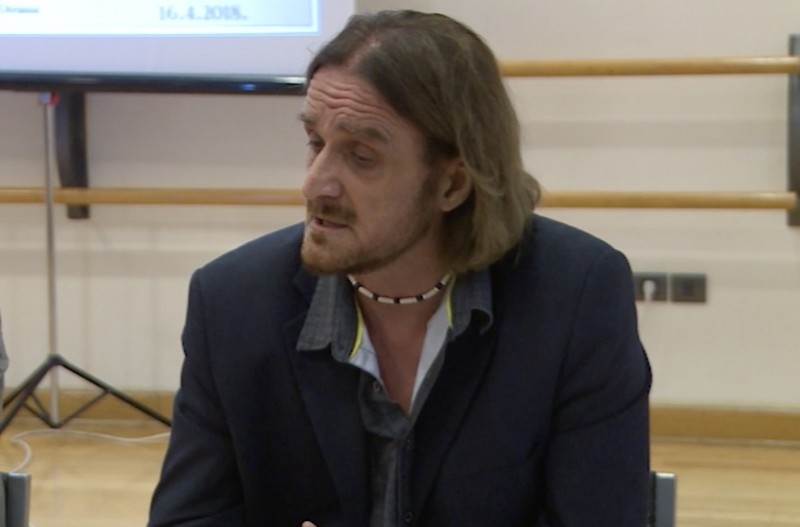
Round table of Antidot and NATO PDD
Great forces use the Balkan media to realize their interests
All the great powers have their interests in the realization of which they use "soft" sources of power, and the most appropriate means for this are the media, said at the "External Impacts on Media Interpretations of Security Issues in the Western Balkans" in Belgrade, where journalists from the region took part.
Marko Matic, the editor-in-chief of Antidote, said that the role of Russia's instructed media in Serbia to spur anti-Western sentiment that could in the future create negative effects. "The goal of the Balkan countries is to preserve regional stability. It's the only chance to get pace with the world. Every conflict would bring him back, "Matic said.

According to Matić, given the so-called economic litmus, which includes trade and investment parameters, Germany has the highest interest in preserving stability in the Western Balkans region, while the exchange with Russia makes up less than ten percent of Serbia's total trade, which shows that this region is not vital to the interests of the Russian Federation. That is why, the official Moscow with very few means can destabilize the region, which in this case can easily become a cheap coin for testing in the global measurement of the forces of great powers. Matić estimates that since March 2014, Russia and the merger of Crimea have seriously invested in their media influence in Serbia, stating that Russian media such as Sputnik are "openly used" as a legitimate and objective source of information that does not match the real role of this paramedic ".
Slobodan Jovanovic, an associate of the Antidote from Montenegro, spoke about an attempted armed coup in that country for which the trial is under way. "It is slowly defined where the influences and resources came from and we came to the information that a part of the media was financed from Russia. Otherwise, in Montenegro there is a big influence of the non-governmental sector, they have a decisive role in the public service, "Jovanovic said.
A journalist from Zagreb, Denis Kuljis, noticed that the presidents of this neighboring country, Kolinda Grabar Kitarović, are not immune to Russian influence. "These connections occur. The first congratulated (Vladimir) Putin in the elections ..., "Kuljis said and assessed that it was a serious project, one economic" soft "interest that reduces the power of the EU, which they are aware of in Berlin and Washington. "We also have a Turkish influence, which I think to date is marginal, does not deserve special attention, but I think that this economic penetration is the most serious thing in the Balkans. The most serious Russian weapons are not their missiles, I do not know what kind of warheads, but the energy game that is now running in Europe, in large part in the Balkans, where the pipeline will pass, "Kuljis said.
Macedonian journalist Ljupco Popovski says that the Russian plans with Macedonia are not like those with Serbia and Croatia, because, as they say, they do not have a gas pipeline. "When the South Stream project collapsed, then the interests of Russia over Macedonia flared up. It took one leg to go from Bulgaria to Skopje, then it collapsed. Now the Russians in Macedonia do not have significant economic interests. Russia ranked 18th as Macedonia's trading partner and trade exchange was reduced to a minimum, "he said. Political influence is, say, bigger, ail not as in Serbia and Montenegro. "We have a big influence in Turkey. The Turks are a highly respected minority in Macedonia. Erdogan's party has announced that it will open its first branch in Macedonia, "Popovski said.
According to Prishtina journalist Imer Musholaj, the influence is felt in Prishtina, besides the most important one - the American one. "The influence of Turkey on Kosovo does not come from the media, but exclusively from Erdogan through President Hashim Thaci, who has a fairly good relationship with him," Musholaj said.
The Meeting on External Impacts on the Media in the Western Balkan Region was organized by Antidot in cooperation with NATO PDD in Brussels.
